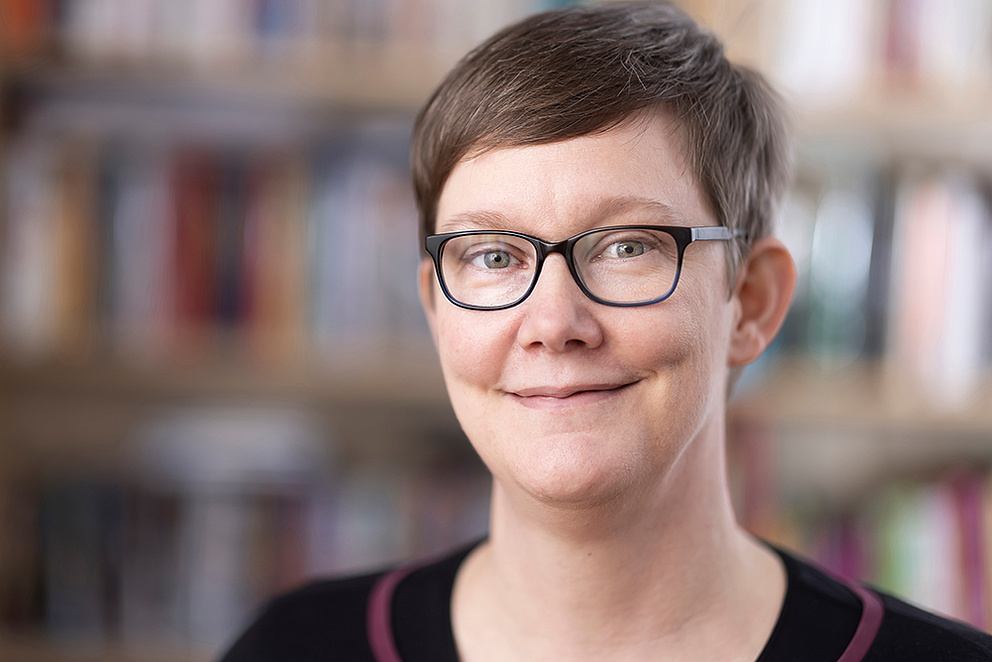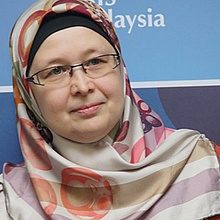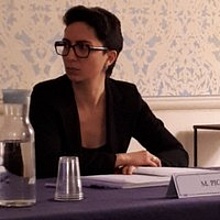

Contact
Press, Communications and Marketing
Tel.: +49 228 833-144
Fax: +49 228 833-441
presse[at]avh.de
How was the Qur’an translated in different regions? What historical circumstances prevailed at the time and what function did these translations serve? Transnational dimensions of Qur’an translations are the subject of the international research project The Global Qur’an being conducted by the Islamic scholar Johanna Pink. The project is being funded through a Consolidator Grant provided by the European Research Council. Being a Humboldt Foundation scout through the Henriette Herz Scouting Programme, Johanna Pink was able to recruit two interesting prospects for her international team at the University of Freiburg. With her entitlement to nominate potential Humboldt fellows, she was able to bring two Islamic scholars, the Tatar Elmira Akhmetova and the Italian Margherita Picchi, as Humboldt Research Fellows to Freiburg. A perfect match for global Islamic studies:
Humboldt Foundation: Professor Pink, how did you use your role as a scout to the benefit of global Islamic studies?
Johanna Pink: Very few people are aware of all the places in the world where the Qur’an has been translated. Particularly in the modern age. For the most part, people associate Islam only with certain regions. However, Islamic text production is much more diverse than one might think. I could have, of course, looked for researchers from traditional bastions of research in the USA or Great Britain. But those researchers have a lot of opportunities open to them. The scouting programme makes it possible to hire researchers who would not have submitted an application to the Humboldt Foundation on their own and it makes it possible to strengthen the Humboldt network in countries and regions where not many Humboldtians have worked to date, like Malaysia where Ms. Akhmetova most recently worked.
Ms. Akhmetova, you work with sources in archives dating back to the Russian Empire. What exactly are you investigating?
Elmira Akhmetova: Millions of (primarily Muslim) Tatars with a long history have been living under the rule of the Russian Empire and in the Soviet Union for a long time, in the regions of Crimea, Central Asia Minor and along the Volga. This is still true today. Translations of the Qur’an into Russian happened during the time of Czar Peter I. and these translations were often not made on the basis of the original Arabic text of the Qur’an. However, in this particular research project, I am going to look at the reasons why, starting from the 19th century, it became increasingly important for Tatars in the Russian Empire to have a Tatar translation of the Qur’an, what necessary conditions emerged in Russia for this to happen, what influences were in play when the translations were prepared, and how these new translations interpreted the Qur’an. I will work on the basis of original sources from the archives of the Russian Empire for this. There has been very little research done on the Qur’an exegesis during the Russian Empire, so my research subject is a very good match for the work that Johanna Pink is doing in Freiburg.
Were you familiar with the Humboldt Research Fellowship before Ms. Pink approached you?
I had already heard of the Humboldt Research Fellowship. But I never would have had the confidence to have applied for one. But Johanna Pink encouraged me to submit an application and now I’m here and have already begun work on my project.

Ms. Picchi, you conduct research into the interpretation of the Qur’an in South Africa. What precisely is the focus of your work?
Margherita Picchi: I focus on how the Qur’an is interpreted in one mosque – the Claremont Main Road Mosque – in Cape Town and specifically during the final phase of apartheid and thereafter. The sermon is a form of tafsir, the exegesis of the Qur’an. Oral forms of tafsir are often neglected in the research done so far. To my surprise, the preachers who deliver their sermons in English rely on their own translations of the Qur’an in order to legitimize the progressive discourse of the mosque. Sermons discuss issues like jihad against poverty, environmental justice, solidarity and even gender jihad – the struggle for women’s rights – and a new interpretation of the Qur’an.
Were you previously familiar with the Humboldt Research Fellowship?
I met Johanna Pink through my research work but I hadn’t ever heard of the Humboldt Foundation’s fellowships prior to that time. So I was all the happier to learn about them from her and to receive this opportunity.

